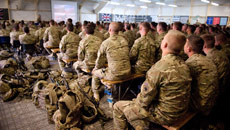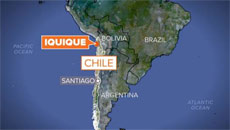WASHINGTON - The Obama administration said Monday it is taking a first step toward requiring that future cars and light trucks be equipped with technology that enables them to warn each other of potential danger in time to avoid collisions.
A research report released by the National Highway Traffic Safety Administration estimates that the technology could eventually prevent 592,000 left-turn and intersection crashes a year, saving 1,083 lives. The agency said it will begin drafting rules to require the technology in new vehicles.
The technology uses a radio signal to continually transmit a vehicle's position, heading, speed and other information. Similarly equipped cars and trucks would receive the same information, and their computers would alert drivers to an impending collision.
A car would "see" when another car or truck equipped with the same technology was about to run a red light, even if that vehicle were hidden around a corner. A car would also know when a car several vehicles ahead in a line of traffic had made a sudden stop and alert the driver even before the brake lights of the vehicle directly in front illuminate. The technology works up to about 300 yards (275 metres) away.
If communities choose to invest in the technology, roadways and traffic lights could start talking to cars, as well, sending warnings of traffic congestion or road hazards ahead in time for drivers to take a detour.
The technology is separate from automated safety features using sensors and radar that are already being built into some high-end vehicles today and which are seen as the basis for future self-driving cars. But government and industry officials see the two technologies as compatible. If continuous conversations between cars make driving safer, then self-driving cars would become safer as well.
Transportation Secretary Anthony Foxx called the vehicle-to-vehicle technology "the next great advance in saving lives."
"This technology could move us from helping people survive crashes to helping them avoid crashes altogether — saving lives, saving money and even saving fuel thanks to the widespread benefits it offers," Foxx said.






